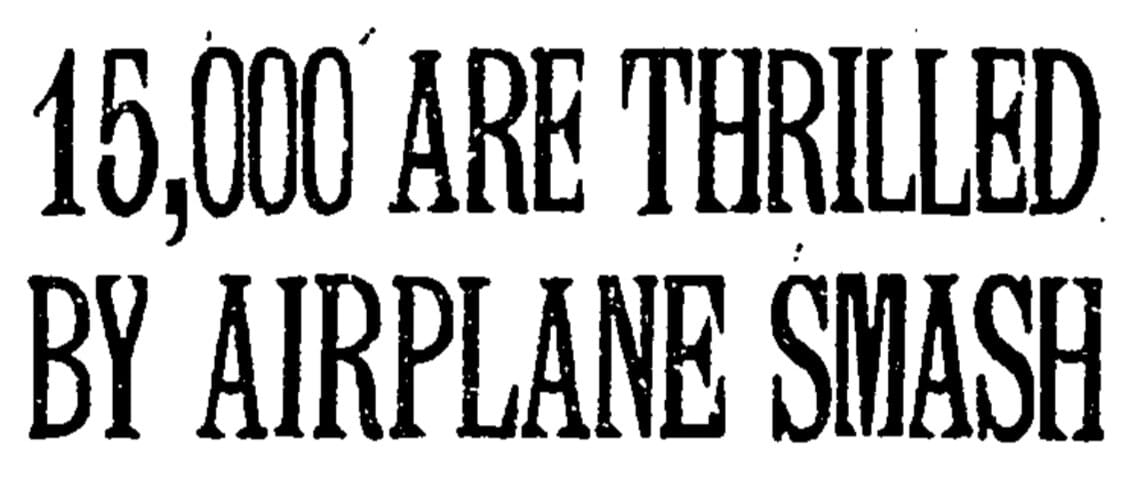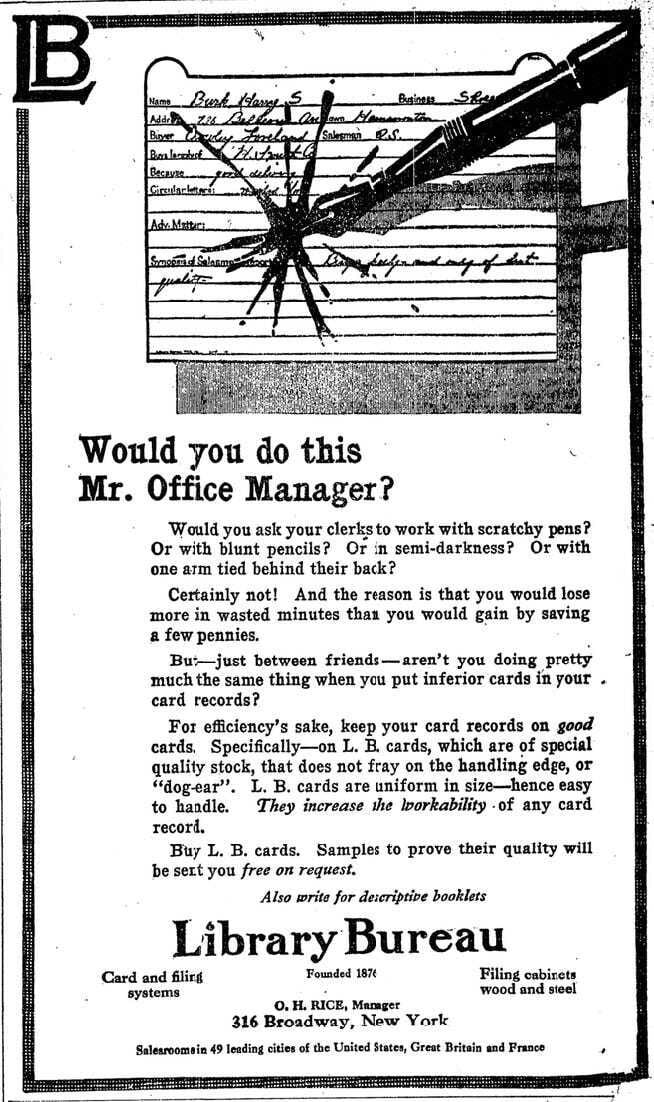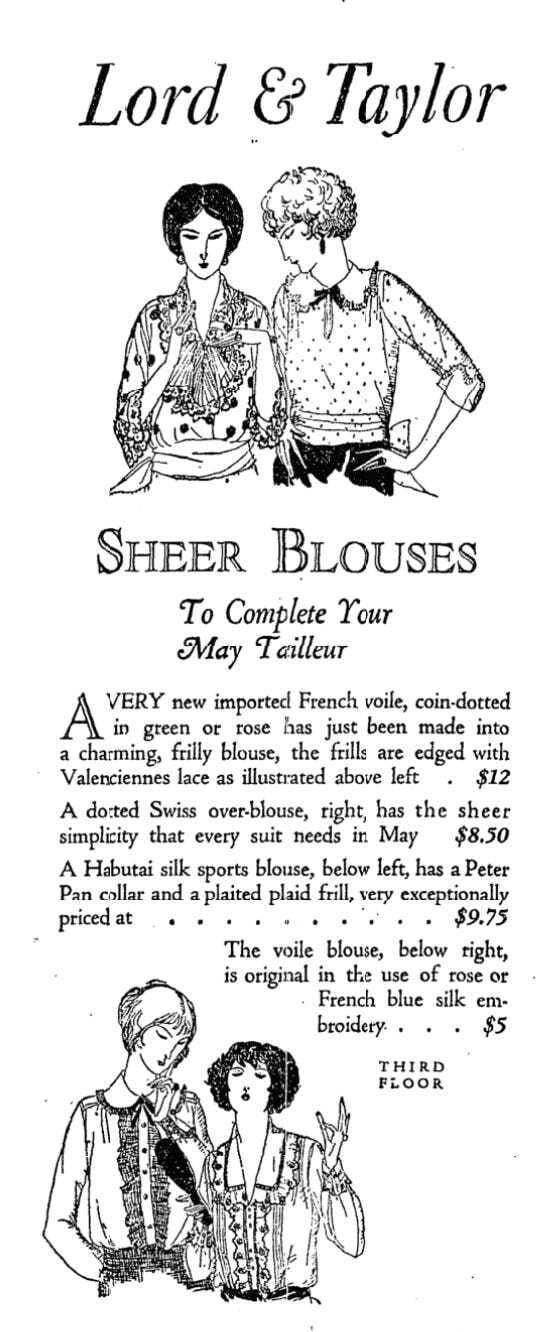- Strange Times
- Posts
- Strange Times 129: An Afternoon of Thrills
Strange Times 129: An Afternoon of Thrills
This is a special-ish issue of Strange Times, as we are covering an issue of the paper that is almost exactly 100 years in the past. What does it mean? Nothing at all! Now, on to the show!
Today an aviator and a philosopher laugh in the face of death. Smash your biplane into the ground on…
May 9, 1921
The Women’s Party purchases a house opposite the Capitol, to use as a “watch tower” from which residents “will keep Congress under perpetual supervision.”
A luxury passenger airliner, which features beds, shower baths, and accommodations for 26 passengers, crashes on takeoff during a test flight, two years after its maiden voyage, in which it crashed twice.
Contradicting yesterday’s report that Italy’s far right “never provoke their adversaries,” a Fascisti gang in Rifridi uses incendiary bombs to set the Chamber of Labor on fire, destroying the building and terrifying the populace.
Incensed by protests against “The Birth of a Nation,” D.W. Griffiths insists that his film is not racist, saying that, because “the leading villain in the story is a white man,” white men would have more cause to complain than Blacks.
Despite the tenor’s recent illness, the impresario of the Metropolitan Opera expresses confidence that Caruso will resume his post when the new season begins in the fall.
The Weather: Fair Monday and Tuesday; mild temperature; west winds.

Ah, how I yearn for the simpler days of 100 years past, when people were satisfied with gentle entertainment, like watching a pilot smash headifrst into the ground.
Before a crowd of 15,000 persons, among them one woman who said her “heart stood quite still,” Major Henry Abbey Jr. flirted with death on Mitchel Field yesterday afternoon—and stepped from the shivered wreck of his airplane, nursing a barked knuckle! The woman who lived through age-long agony in that fraction of a second, and who was the first to cheer when the Major thrashed his arms in signal to the hushed crowd that he was unhurt, was his wife, who sat in an automobile parked with hundreds of others at one end of the field.
It happened on the flying ground at Mineola, L.I., in the course of an army air service tournament. It was the best as well as the most unexpected of an afternoon of thrills and the field commandant who starred in it proved his gameness after the crash by going aloft once more.
The Major had been trying to catch Lieutenant John T. Roulet in a faster plane over the forty-five mile course. When he saw that his tiny, one-seated S-5 biplane was not equal to the racing task he closed his throttle and volplaned down in a long, graceful swoop that took him over the hangars, and thence groundward at a sharp angle over the heads of the watchers.
Before the spectators knew that anything was amiss, a sudden puff of wind, just as his craft was losing the last of its momentum, sent the Major into a perilous side slip. Realizing the imminent danger of overturning if he struck the ground, he opened his engine full bore, the sudden brazen hum of the propeller so near the earth startling the spectators into tense watchfulness of his movements.
The gallant little ship responded instantly and strove hard to rise, but again a little chop in the fitful breeze sent the S-5 careening sideward. A wing tip grazed the earth, acted as a fulcrum, and sent the plane with its motor revolving full speed smashing to the ground.
It buried its nose deep, there came the instantaneous splintering of struts and ripping of fabric, the buried nose flung dirt high into the air and gasoline from a riven tank sprayed over everything.
There was just an instant of deep silence, then an awed, frightened buzz and a big shift of the massed crowds toward the spot—and then Major Abbey, waving and smiling, was astride the messy wreck of his plane and guards were driving the curious back, while an ambulance and a chemical engine, already speeding toward the plane, halted and wheeled away.

Doing a little fact-checking on this story, I found that this headline has been inaccurate since 1970. (Bertrand Russell lived a long time!) Hopefully the Times will issue a retraction.
Recent issues of the Japan Advertiser, arriving yesterday, set at rest the rumors of the death of Bertrand Russell, the English pacifist, mathematician and sociologist. The same paper, which had previously published an account of his death in Peking on March 28, now gives an account of his recovery from the supposedly fatal attack of pneumonia.
Mr. Russell’s wife, who was Miss Alys Pearsall Smith of Philadelphia, obtained a divorce in England last Thursday. The Japan Advertiser states that he had arranged to marry, on the termination of this English action, his secretary Miss Belloc, who was with him in China during his lecture tour and had nursed him in his illness there.



